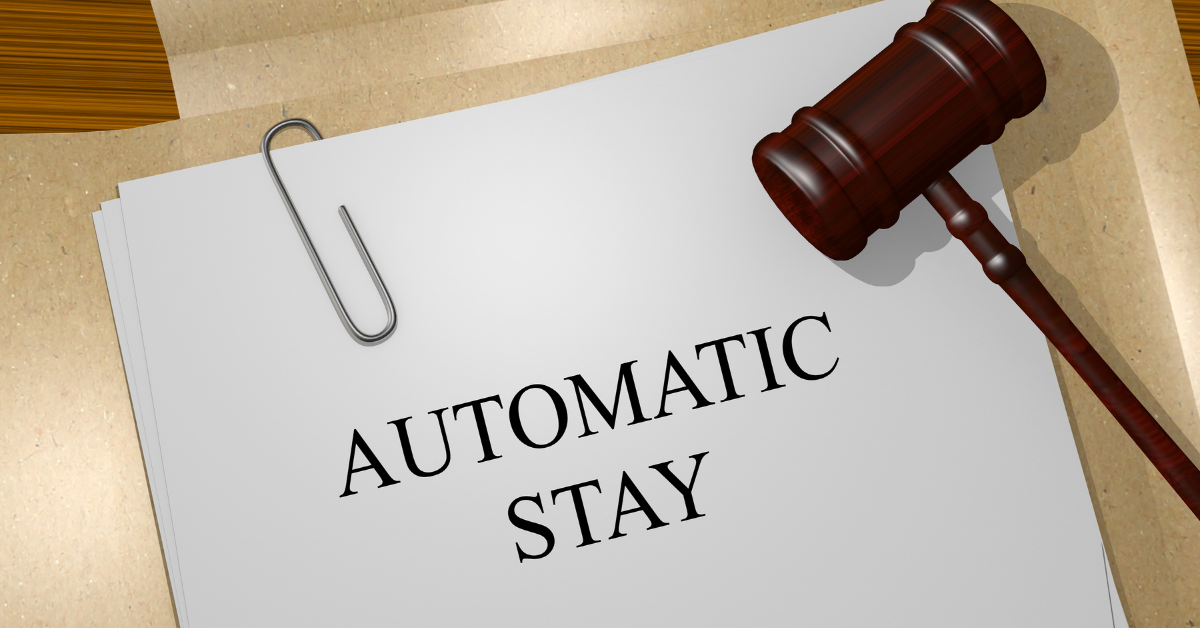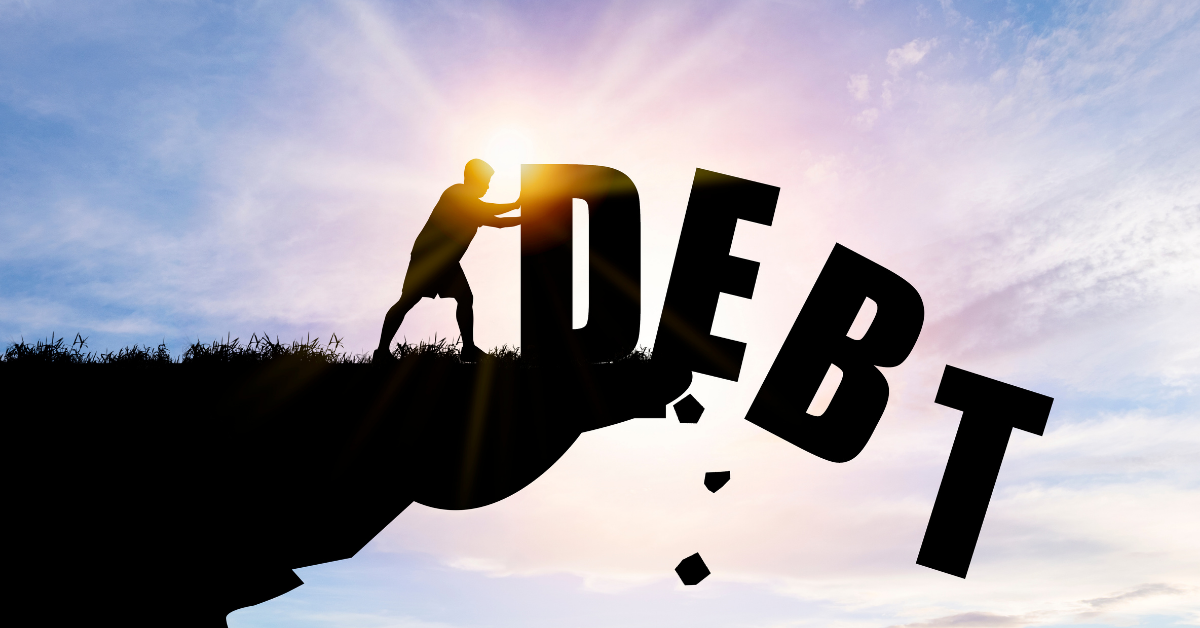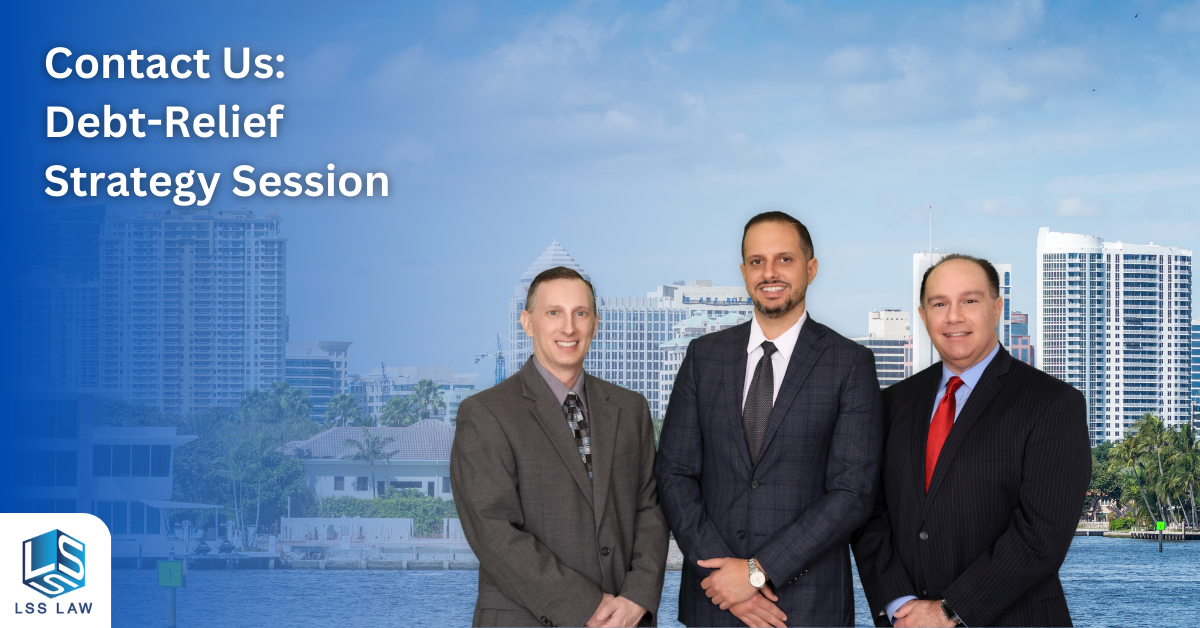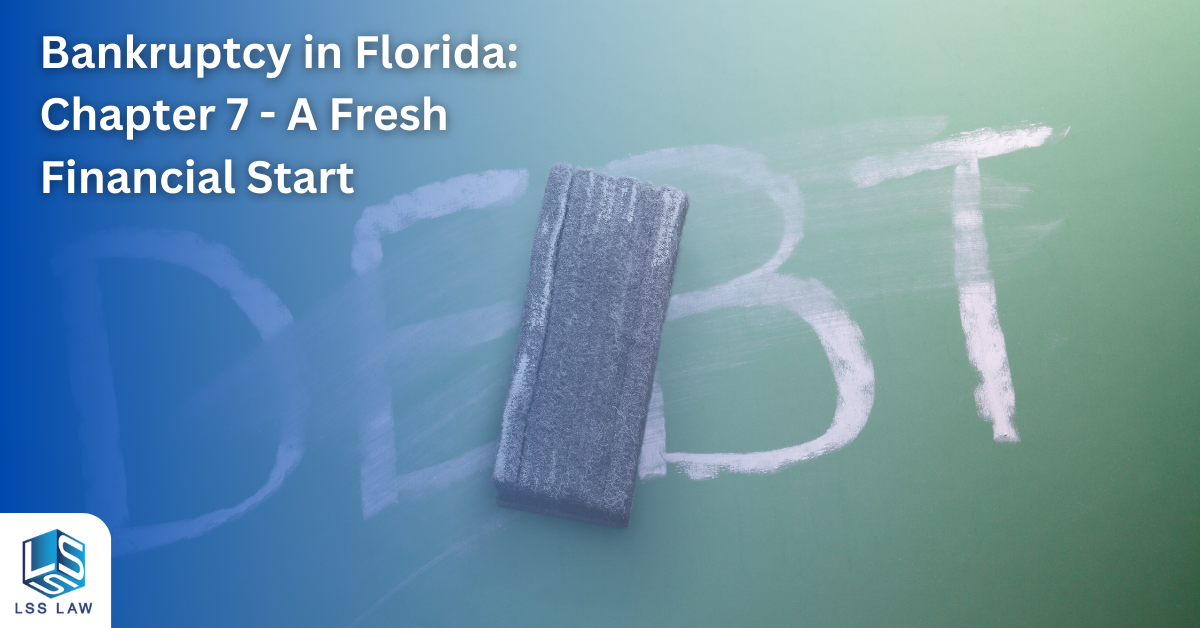In the midst of financial hardship, it can feel as though time stands still. The pressure of mounting debt can cloud your judgment, leaving you unsure of where to turn next. But fear not, because there is a solution, and it’s not as daunting as it may seem. This solution is Chapter 7 bankruptcy. Now, you might be wondering, how long does Chapter 7 take in Florida? This is a common question and one that we, at LSS Law, are here to answer for you.
What is Chapter 7 Bankruptcy and How Long Does it Take in Florida?
Chapter 7 bankruptcy, often referred to as liquidation or straight bankruptcy, is a legal process that allows individuals and businesses to eliminate their unsecured debts. This process involves liquidating non-exempt assets to pay off creditors. It’s a powerful tool that can provide a fresh financial start for those who are struggling with debt.
Now, let’s address the question at hand: how long does Chapter 7 take in Florida? Typically, the Chapter 7 bankruptcy process takes about four to six months to complete from the time of filing. This timeframe can vary depending on the specifics of your case, such as the complexity of your financial situation and the workload of the bankruptcy court.
Chapter 7 Bankruptcy Process Explained (Florida)

When you file for Chapter 7 bankruptcy in Florida, you’ll start by taking a credit counseling course. This is a requirement under the United States Bankruptcy Code. Following this, you’ll need to prepare your bankruptcy petition, which includes listing all your assets, debts, income, and expenses.
Once your bankruptcy petition is filed, a bankruptcy trustee is appointed to your case. This trustee will review your financial information, liquidate any non-exempt assets, and distribute the proceeds to your creditors. You’ll also be required to attend a meeting of creditors, also known as a 341 meeting, during the bankruptcy process.
One of the key aspects of filing bankruptcy is the automatic stay provision. This provision stops most collection actions during the bankruptcy process, providing you with some much-needed relief from creditor harassment.
The final step in the Chapter 7 bankruptcy process is the bankruptcy discharge. This is when your eligible unsecured debts are officially eliminated. However, it’s important to note that not all debts can be discharged. For example, secured debts, certain tax debts, student loans, child support, and alimony are typically not dischargeable.
Remember, while bankruptcy can provide a fresh financial start, it’s not a decision to be taken lightly. It’s always recommended to consult with an experienced bankruptcy attorney to fully understand your options and the potential implications.
Chapter 7 Bankruptcy: The Means Test

As per the bankruptcy law, not everyone is eligible to file for Chapter 7 bankruptcy. To qualify, you must pass what is known as the means test. The means test compares your income to the state median income and determines your disposable income after accounting for necessary living expenses.
If your income is below the state median income, you automatically pass the means test and can file for Chapter 7 bankruptcy. If your income is above the median, you’ll need to calculate your disposable income. If you have enough disposable income to repay some of your unsecured debts, you may not qualify for Chapter 7 and might have to file for Chapter 13 bankruptcy instead.
The Automatic Stay and Meeting of Creditors

Once you file for Chapter 7 bankruptcy, an automatic stay goes into effect. This stay provides temporary relief by stopping most collection actions by creditors. This means that creditors cannot garnish your wages, empty your bank account, or go after your car, home, and other property.
After filing bankruptcy, you will be required to attend a meeting of creditors, also known as a 341 meeting. At this meeting, the bankruptcy trustee will ask you questions about your bankruptcy case and creditors may also be present to ask questions. This meeting is usually straightforward and does not take much time.
Florida Bankruptcy Exemptions and Non-Exempt Assets
In the context of a Chapter 7 bankruptcy, it’s crucial to understand the concept of exemptions. These are laws that allow you to protect certain types of property from being sold by the bankruptcy trustee to pay your creditors. Florida has specific exemptions that protect assets like homestead property, cash value in whole life insurance policies, retirement accounts, and limited protections for personal property and vehicle equity.
The Florida homestead exemption, for instance, protects an unlimited amount of equity in a primary residence, with size limitations based on location. Furthermore, Florida’s motor vehicle exemption protects up to $1,000 in vehicle equity. Retirement accounts are generally exempt from liquidation in a Florida Chapter 7 bankruptcy.
However, not all assets are protected by exemptions. Non-exempt assets are those that the bankruptcy trustee can sell to pay back your creditors. It’s important to accurately list all your assets in your bankruptcy petition, as failing to do so can result in penalties for bankruptcy fraud.
Reaffirming Secured Debts and Discharging Unsecured Debts
In a Chapter 7 bankruptcy, most of your unsecured debts, such as credit card debt and medical bills, will be discharged, meaning you are no longer legally required to pay them. However, secured debts, such as car loans and mortgages, are not discharged in Chapter 7.
If you want to keep property that is collateral for a secured debt, you may need to sign a reaffirmation agreement with the creditor. This agreement reaffirms your personal liability for the debt, even after bankruptcy. It’s important to consult with a bankruptcy attorney before signing a reaffirmation agreement, as it can have significant financial implications.
Why the Filing Date Matters
The filing date is a critical date in your Chapter 7 bankruptcy case. This is the date when you officially file your bankruptcy forms with the bankruptcy court. The filing date is important for several reasons.
First, the filing date is when the automatic stay goes into effect. The automatic stay is a legal injunction that stops most collection actions against you, including lawsuits, wage garnishments, and phone calls from creditors.
Second, the filing date determines the property that becomes part of your bankruptcy estate. Generally, all property you own as of the filing date, including property you acquire right up to the moment of filing, becomes part of the bankruptcy estate.
Third, the filing date is used to determine whether certain transfers of property can be avoided or recovered by the bankruptcy trustee. For example, the trustee can recover certain property you transferred within two years before the filing date if the transfer was fraudulent or preferential.
Lastly, the filing date is used to determine your eligibility for a bankruptcy discharge. For instance, you cannot receive a discharge in Chapter 7 if you received a discharge in another Chapter 7 case filed within the previous eight years.
Therefore, knowing your filing date and understanding its significance can help you navigate the bankruptcy process more effectively.
Your Goal: Discharging Debts in Chapter 7 Bankruptcy

One of the main goals of filing for Chapter 7 bankruptcy is to obtain a bankruptcy discharge. A bankruptcy discharge is a court order that eliminates your personal liability for most types of unsecured debts. This means that once a debt is discharged, the creditor cannot take any action to collect the debt from you.
In most Chapter 7 cases, the debtor receives a discharge about four to six months after filing the bankruptcy petition. However, the bankruptcy court can deny a discharge if the debtor fails to complete the required debtor education course, fails to provide requested financial information, or commits bankruptcy fraud.
Keep in mind that not all debts can be discharged in Chapter 7 bankruptcy. Certain debts, such as child support, alimony, some tax debts, and most student loans, are generally not dischargeable. If you have any questions about which debts can be discharged, it’s best to consult with a bankruptcy attorney.
Chapter 7 Florida Timing FAQs
What Does the Bankruptcy Trustee Do in a Chapter 7 Case?
The bankruptcy trustee plays a critical role in a Chapter 7 case. Appointed by the bankruptcy court, the trustee’s main job is to liquidate non-exempt assets of the bankruptcy estate and distribute the proceeds to creditors. The trustee also reviews the bankruptcy petition and supporting documents, and may challenge exemptions or bring actions against creditors or the debtor if warranted.
Can I Keep My Car if I File for Chapter 7 Bankruptcy in Florida?
Yes, Florida’s motor vehicle exemption allows you to protect up to $1,000 in vehicle equity. If your car is fully paid off and its market value is $1,000 or less, you can keep it. If your car is worth more than $1,000, the trustee can sell it, pay you $1,000, and use the rest to pay your creditors. However, if you have a car loan, you may be able to keep your car by reaffirming the debt or redeeming the vehicle.
What Debts are Discharged in Chapter 7 Bankruptcy?
Chapter 7 bankruptcy discharges most unsecured debts, including credit card debt, medical bills, and personal loans. However, certain debts are non-dischargeable, including most student loans, child support, alimony, and certain tax debts.
What is the Means Test and How Does it Affect My Chapter 7 Bankruptcy?
The means test determines if your income is low enough for you to file for Chapter 7 bankruptcy. It compares your household income to the median income in Florida for a household of your size. If your income is below the median, you qualify for Chapter 7. If it’s above, you may still qualify by showing that you don’t have enough disposable income to pay your debts.
How Long Does a Chapter 7 Bankruptcy Stay on My Credit Report?
A Chapter 7 bankruptcy stays on your credit report for 10 years from the date of filing. However, the impact on your credit score can start to decrease over time, especially if you take steps to rebuild your credit.
Can I File for Chapter 7 Bankruptcy If I Have Filed Before?
Yes, but there are time limits. You must wait eight years from the date of your previous Chapter 7 filing, or six years from a Chapter 13 filing, to file for Chapter 7 again.
Contact Us to Learn More About Chapter 7 Bankruptcy in Florida

If you’re considering filing for Chapter 7 bankruptcy in Florida and have more questions, don’t hesitate to reach out to us. Our team of experienced bankruptcy attorneys at LSS Law can guide you through the process and help you make the best decision for your financial situation. Call us at (954) 466-0541 or visit our contact page to schedule your free consultation for personal bankruptcies. We’re committed to helping you remove the financial monkey from your back and open the door to a brighter future.






